Rahul Dravid is among the most-respected cricketers India has produced. It is sheer irony, therefore, that the side he led in the Indian Premier League (Rajasthan Royals), its owner and players, are embroiled in the spot-fixing scandal that surfaced in the sixth edition of the cash-rich T20 extravaganza.
In an exclusive interview with ESPNcricinfo, the former India captain talks about dealing with the charges of spot-fixing against his team-mates, why the law needs to be involved in the manner sports is administered in the country and how retaining the game’s credibility and reverence the fans have for players is paramount.
Excerpts:
Rahul, the last three months haven't been easy for you.
Yes, towards the end of the IPL it was a difficult period. Difficult personally and from a team perspective as well. So, in a lot of ways, relating to the IPL and personally, it has been a tough time.
Take us through those first couple of days. Describe your emotions when you heard about it.
There is not really one emotion at a time like that. You go between anger, sadness, disappointment, you feel bad. From our [Rajasthan Royals] point of view, I thought the IPL was going really well. For a team like that to be at that position at that stage, to be pushing for the title, was fantastic. I thought, not just from Rajasthan Royals point of view but from the whole IPL's point of view, till that point it was a really good IPL; good crowds, some good cricket to watch. The standard of cricket was good. So for that to happen was really disappointing from everyone's point of view.
You really involve yourself in building this team and get personally involved with a lot of players. So was betrayal an emotion you felt very strongly?
It's not just about me personally. While I'm the face of the team and probably the most high-profile player in that team, there are a lot of people in the team and a lot of people who have done work behind the scenes, not just to get the team together but to set up the whole team, set up the franchise. A lot of people work behind the scenes to make the IPL the success that it was. Obviously, you do feel bad because you know some of these players at a personal level.
'You go between anger, sadness, disappointment'
Image: Rahul DravidSo what happens to a team at that point? You had qualified already. How easy or difficult is it to get your mind back to doing what you ought to be doing?
I think it's difficult; it's not easy as there's not a lot of clarity at that stage. Now, today, there's a lot more information that has come out and there's a lot more in the public domain.
But, at that particular point of time, especially when we had to play a game two days later or a day later actually, there was a lot of confusion around the group - nobody knows if people are really involved, there are lot of rumours flying around, the police is involved, what is going to happen next, is the tournament going to go on? Are we going to be able to play? Are only the players who have been mentioned [involved]? Are there other people? What could we have done better? What should we do now?
So I guess at that point of time there are just so many things going on. It's hard and never easy to sit back and focus on the cricket. Which is what you'd expect us to do and want us to do. So, especially that game against [Sunrisers] Hyderabad, it wasn't about cricket, but it was about us trying to get the group together and trying and getting on the right track, and luckily from our point of view we had already qualified for the semi-final.
Do you go back and look at some of the events? What went on here, what went on there? Do you start doubting more people around you?
I think your first instinct is to try and trust people, but there's no doubt that when something like that happens and there's no clarity about which games, what happened, it's but natural as individuals and players in a team that you do discuss - 'Could they be talking about this game?'
It's hard; that's the difficult thing about spot-fixing and why it's so different from match-fixing.
Spot-fixing, that's why it's so hard to control or police in some ways, because if someone, if he decides tomorrow, to get out or an individual decides to bowl a no-ball or a wide or give a certain number of runs an over, there's very little you can do and very little somebody else can do around it.
'You feel angry for the passionate fans'
Image: Rahul DravidYou're someone who has played with a certain amount of integrity and honesty and when you see something like this it must make you really angry. Did you think at that time, maybe, cricket isn't worth playing?
There is anger. Like I said earlier, you go through emotions, there is anger and you feel let down. Especially in India, in fact not only in India, there are so many passionate fans of this game, who truly love the game, you can read and hear about the sacrifices they make to be able to watch us play cricket matches, wherever, in different parts of the world.
Waking up at wee hours, following the game, writing about the game on the web. Today, because of the web you get to see just how many fans this game actually has and how passionate they actually are.
You feel angry for them. You feel angry, when things happen, that you have let down people like that, you've let down the real fan and you've let down the people who truly care about this game and give you unqualified support, and that's where you feel that sense of anger.
You have been part of two teams that have been involved in fixing scandals and in 2000 you were much younger. How did it affect you then?
The funny thing was in 2000 - and I tell people that - I remember the day I landed in England to play county cricket for Kent was actually the day Hansie Cronje confessed and I remember this so clearly because I landed in Kent and Simon Willis, who was involved in Kent at that time, came to pick me up at Heathrow Airport and the first thing he said was "welcome to England" and the next thing he said was "Hansie Cronje has confessed".
Six months I was away from India then and all hell broke loose in India after that, and a lot of stuff happened in the next six months, but I felt completely away from it all because I was playing cricket in England and in those days I didn't have access to a computer or wifi and if I needed to get news from India. I remember I had to go to the club office for a computer and then log on to pages.
'I don't know how you equip yourself to handle these things'
Image: Rahul DravidBut Cronje was a huge figure, an iconic figure, who played cricket hard.
You're right. When you played against him, you respected him for the way he carried himself as a captain. And for a lot of young, aspiring players at that stage, people would look at Cronje and if you wanted to know how to captain a team, he was the sort of guy that you looked up to.
So would you say, in a strange way, you are better prepared to handle this?
I don't know how you equip yourself to handle these things really. I don't think you go around getting a training course on how to handle something like this, but I guess that sense of naivety wasn't there this time. I mean, because it had happened before, that level of shock when that thing broke out then obviously was not there this time, because it had happened before.
Do players think the same way as fans? Does fixing get spoken about in dressing rooms or in conversations that players have?
When incidents happen, like the Pakistan players at Lord's or the Bangladesh Premier League or even last year in India, where there was a sting operation and there were some boys who were managed to fix games or take money under the table, when incidents like these happen and it comes out in the papers, players do talk about it. It does get discussed in the dressing room.
It won't be constantly discussed in the dressing room, like players always taking about fixing, it's not like that. But when incidents happen, people do talk about it, people do mention it and just in general, casual chat that would happen in any dressing room.
'We have anti-corruption training before every tournament'
Image: Rahul DravidBut when you are leading IPL teams, there players are from a different background and there are players you may not know as well as you know an Indian team. In team meetings, is there any kind of counselling or do these things ever get talked about?
They do. We have anti-corruption training before every tournament, before every IPL, before every international series or at least once or twice a year. In fact, I don't think there's anybody in an IPL team who has not received that training from the Anti-Corruption and Security Unit, and they do a particular job of it.
That training module that the ACSU shows and the ACSU officers who come and give that training are actually really good, that's a pretty good module. So from that point of view it is done. We do discuss it at team meetings, that if you do notice anything untoward and if you notice anything suspicious then please report it and these are the lines of how you should go about it. So the structure of what you should do if you are approached is quite clear to every player. I don't think any player can honestly say that he didn't know. That's how it's done. Obviously, from what we've seen, it's not really working.
What about at a lower level? Do you think there should be more counselling at lower level about the values of cricket?
I think a two-pronged approach [is needed]. My personal belief is that education and counselling at a junior level is really important. As we've seen recently with these incidents, they aren't only about international cricketers but we've seen with the sting operations last year, with what's happened this year, is that a lot of these elements are targeting younger players, domestic players, first-class players.
So, obviously, counselling and guidance has to go to the first-class level and junior level. So I think we've got to start early, we've got to start young but like I said earlier, in answer to your question, that part of it is already being done. I know that India has its own ACSU and even for Ranji Trophy teams this education is given.
So I don't think only education can work, [we have to] police it and have the right laws and ensure that people, when they indulge in these kind of activities, are actually punished
'Credibility of a game in the eyes of the public is extremely important'
Image: Rahul DravidDo you think that administrators have done enough? Have they shown enough seriousness consistently over the years, or is it when something like this happens, people wake us and then it dies down?
I think they've tried. We can easily go around blaming just administrators and players. But the fact that the incidents are still happening, it means that it [what is being done] is not enough and we need to admit the fact that we need to work in partnership with the law in this country to be able to actually crack down on this thing.
One thing that happens every time a fixing story breaks is that cricket suffers a serious dent in its credibility. We're not going to go into specific cases because your team is involved and one of your team's owners is involved. But do you think that administrators in our country care enough about credibility?
I think they should. I think it's really important. Like I said earlier, when I answered your earlier question, so many fans and so many people care deeply about this game and it's because of these fans and people we are who we are as cricketers. Administrators are there because of the fans and the cricketers, to run this game. So I think that credibility of a game in the eyes of the public is extremely important.
Credibility of a cricket board or organisation?
Of any authority, of a team, of a board, or a government for that matter. I think credibility, irrespective of what you do, if you are in public life, then it is important.
'There's a huge amount of respect associated with being cricketers'
Image: Rahul DravidBut the thing about the government is that it can get voted out every five years, but with administrators you can't vote them out…
I don't want to get into the specifics of it; it's not fair; and I'd like to believe that there are good administrators as well, people who have done a lot for the game - the game has grown in this country and you can't argue with that. Across the world as well, not only in India. But like good and bad cricketers, I guess there are good and bad administrators.
What would be your message to cricket administrators, not only on fixing but generally on the issue of credibility?
I think, cricketers in India - right from the time I can remember, growing up - were always celebrities. I think they still are and we still are. But apart from being celebrities there's a huge amount of respect associated with being cricketers and a certain amount of reverence and honour associated with representing India.
In people's eyes, apart from other celebrities in India, I think for sportsmen in India there's a certain amount of regard. Whether [it's because] there's more money now, it's not seen as an amateur thing anymore, and for a variety of reasons things like this don't help - when we are on the front pages of the newspapers and not on the back.
Things like that don't help, a certain amount of that reverence and respect and love for cricketers, for sportsmen, can diminish and I think that will be a really sad thing for sport and for cricket in this country if that happens.

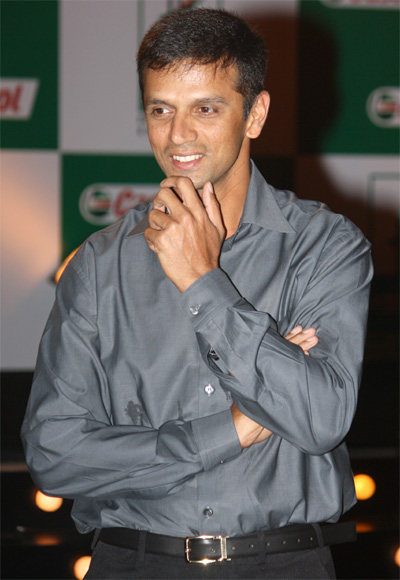
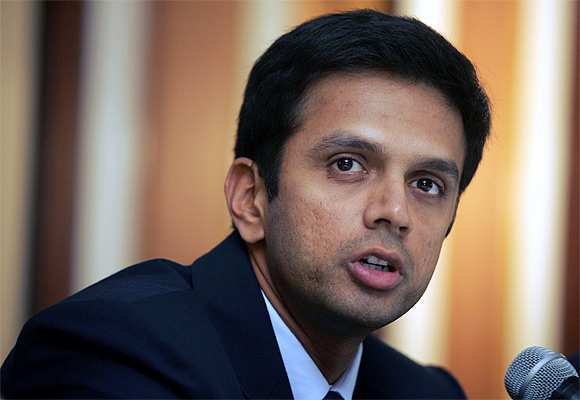
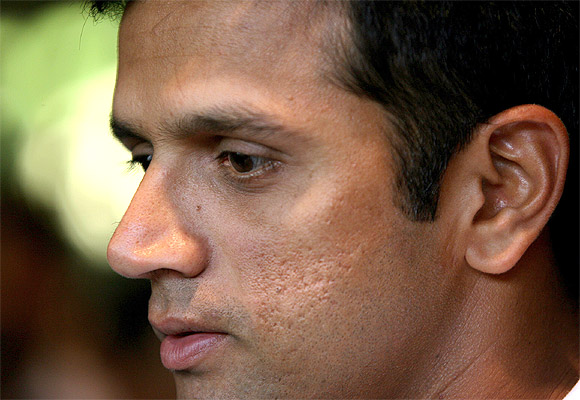
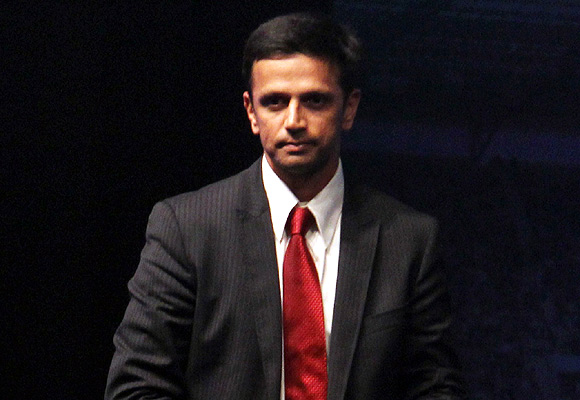
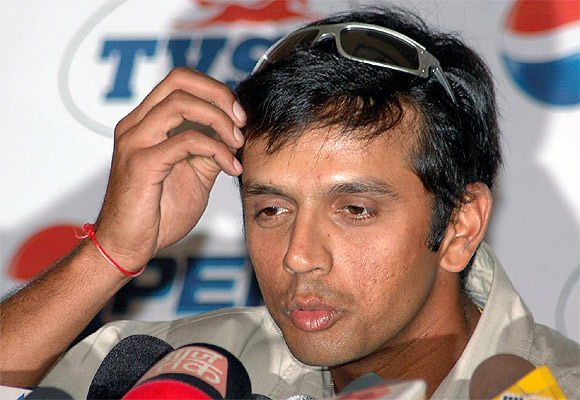
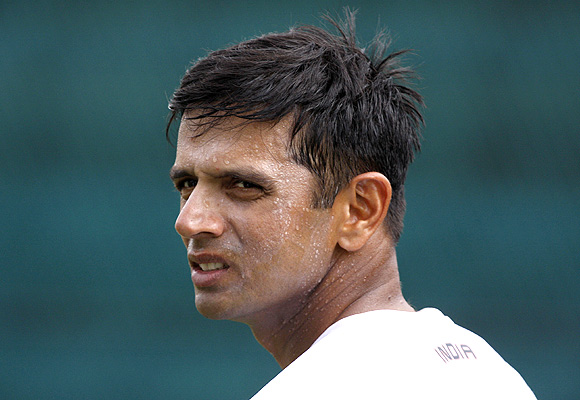
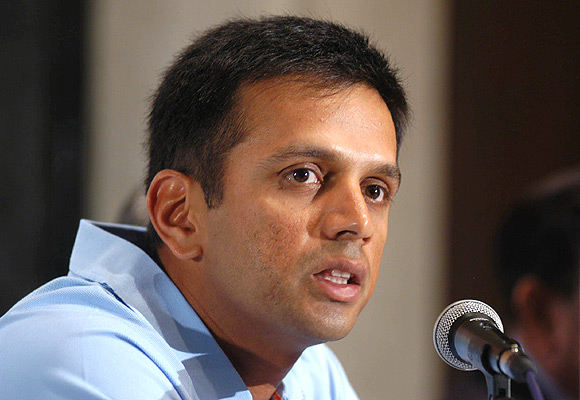
Comment
article